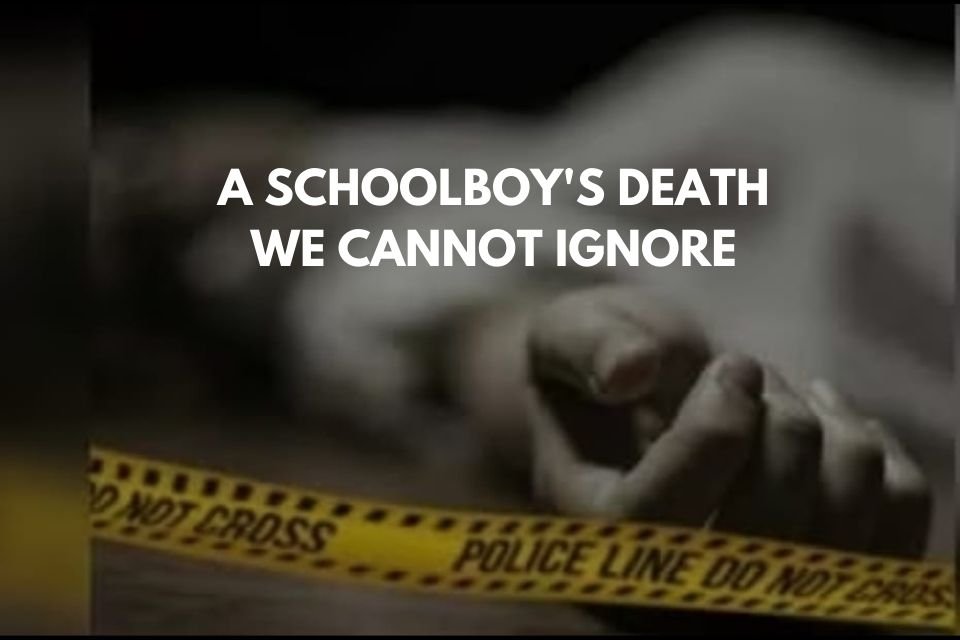It’s a tragedy that has left an indelible scar on our collective conscience. A 12-year-old boy in a Vasant Vihar school, Delhi, lost his life in an altercation so trivial, it defies comprehension—allegedly over the accidental touching of shoulders. This incident, captured on CCTV footage, shows the deceased involved in a “scuffle” with his classmate, who has now been apprehended by the police. According to investigators, the fight escalated to a horrifying climax, with the accused pushing the boy against a wall and strangling him.
This incident is more than a tragic loss of life; it is a glaring reflection of a deeper societal crisis. How did we reach a point where minor disagreements among children lead to such violent outcomes? This is not merely about two boys; it is about a generation increasingly shaped by aggression, desensitised to empathy, and fuelled by the dangerous influences of digital exposure.
From Innocence to Instinct
Classrooms and playgrounds were once spaces for growth and camaraderie, where conflicts were resolved with words or quickly forgotten. Today, they seem to have transformed into battlegrounds. The Vasant Vihar tragedy starkly underscores how aggression has seeped into our children’s behaviour—a phenomenon amplified by excessive exposure to smartphones, violent video games, and unchecked social media content.
Platforms meant to connect and entertain are creating a toxic environment that normalises conflict and rewards hostility. Video games and web series that glorify violence blur the lines between virtual fantasies and real-world behaviour. This digital diet of aggression becomes a blueprint for children, shaping their interactions and reactions in troubling ways.
The Role of Social Media in Eroding Empathy
Social media, far from fostering emotional intelligence, has become a breeding ground for bullying and toxic competition. Children learn to measure their worth through likes and shares, often at the expense of kindness and understanding. The ability to resolve conflicts constructively—a hallmark of emotional maturity—is increasingly absent, replaced by a culture that glorifies dominance and retaliation.
The Delhi incident is a chilling example of how this erosion of empathy can have fatal consequences. A minor disagreement escalated into violence so severe it cost a young boy his life.
Parental Blind Spots and Unchecked Freedom
Parents, often grappling with their own digital distractions, inadvertently hand over unrestricted access to technology without considering its impact. Smartphones, designed to be addictive, become the default babysitters. Instead of instilling values of patience, compassion, and restraint, children are left to navigate a digital jungle that prioritises instant gratification and confrontation.
This lack of supervision, combined with minimal regulation of violent content, is creating a generation unequipped to handle real-life conflicts.
What Schools and Policymakers Must Do
While parents bear significant responsibility, schools and policymakers cannot absolve themselves. Educational institutions must foster environments that prioritise emotional learning alongside academics. Conflict resolution, empathy, and emotional intelligence must be integral parts of the curriculum.
Policymakers, on the other hand, must implement stringent content regulations for video games, web series, and social media platforms. Age-appropriate content filters, coupled with awareness campaigns, can help mitigate the harmful effects of digital exposure.
A Collective Call to Action
The death of this 12-year-old boy is not just an isolated tragedy; it is a wake-up call for society. It demands urgent introspection and action from parents, educators, and policymakers alike:
1. Enforce Boundaries on Digital Usage: Limit screen time and closely monitor what children consume online.
2. Promote Healthy Alternatives: Encourage hobbies, sports, and activities that foster teamwork and empathy.
3. Strengthen School Policies: Adopt zero-tolerance approaches to violence and prioritise mental health support.
4. Regulate Content: Implement strict controls on violent and age-inappropriate digital content.
A Tragic Reminder
The loss of a young life over something as trivial as “touching shoulders” should shake us to our core. It is a reminder of the fragility of childhood innocence and the perils of a world that has normalised aggression.
The Middle Class Hub urges every parent, teacher, and policymaker to recognise the urgency of this crisis. Childhood should be a time of learning, laughter, and growth—not one marred by violence and tragedy. Let us ensure that this devastating loss spurs us into action, for the sake of our children and the future they deserve.




